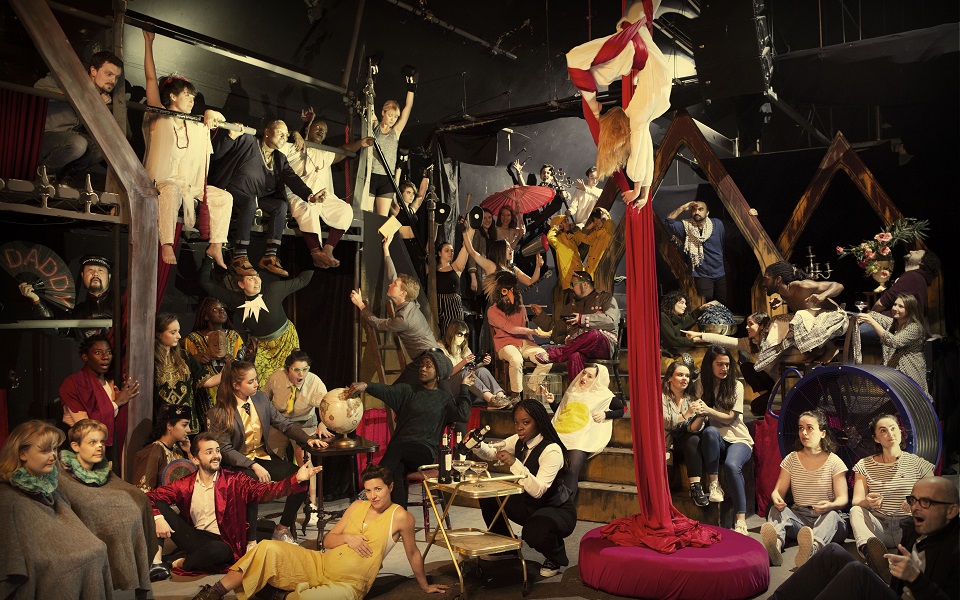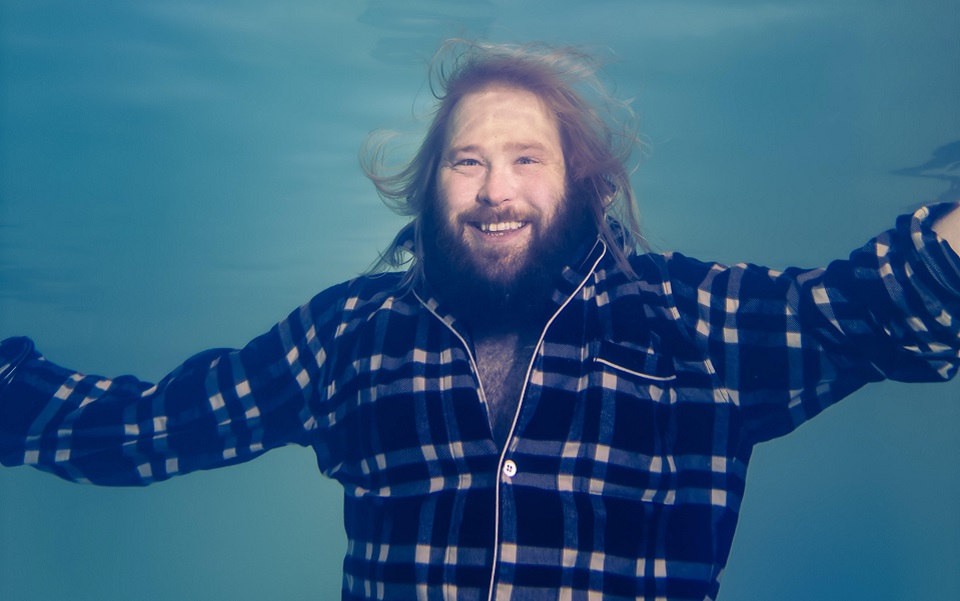Actors on how to save Vault Festival: ‘Batman and DC Comics could cough up £150k’

Vault Festival, the UK’s second-biggest arts festival behind the Edinburgh Fringe, has lost its premises for 2024 and beyond as its landlords are favouring more commercial work. Here, two professional actors reflect on how Vault Festival shaped their careers – and how it’s vital for all new actors, writers and directors and must be saved. You can donate to help save Vault Festival here
Katie Arnstein owes her entire career to Vault Festival. She left drama school and entered the world of acting, but quickly experienced sexism and struggled to land work. She decided to write her own play, then turned to Vault Festival, who agreed to stage it despite her being an unknown.
The show got great reviews and was given bigger platforms, including a 30- date UK tour. Arnstein has now written multiple shows as a professional writer-performer because of Vault Festival, which receives no government funding but has launched the careers of thousands of creatives. However, the festival loses its home this weekend after 11 years, as their landlords are prioritising more commercial opportunities.
“I’m going to sound like a dickhead but I’ve won loads of awards and been able to tour the UK, and it’s all because of Vault,” says Katie. “I’ve got a writing agent because of Vault, because I could write shows and knew they’d be put on. I’ve been commissioned by the BBC to write my first short film, truly all of that is because of Vault Festival. They are a truly accessible venue in terms of financial accessibility but also actual accessibility.”

It’s not an understatement to say losing the festival would severely impact the pipeline of new actors, writers and directors trying to cut their teeth in live performance. The festival funds two thirds of the cost of putting on a show with box office sales, meaning people from lower income backgrounds can put on work, and there’s a high footfall of paying ticketholders because of the central London location. There is nowhere of this scope in England for new talent to experiment.
Imelda Staunton, the Bridgerton cast and The Crown’s Emma Corrin are some of the other names to have come out in support of the festival since the news of its closure. “In five to 10 years I would be surprised if there wasn’t a significant proportion of people running national theatres and theatre companies who did some of their first work at Vault,” says James Rowland, a writer-performer who credits his full-time acting job to Vault Festival.

“That’s just how it works, unless you’re immensely privileged and skip a few steps. You work your way up and Vault is the grassroots of the theatre you see. It’s where people have made contacts, made friends, made artistic relationships. None of that exists without it.”
The festival has launched a Save Vault campaign to raise $150,000 to fund moving the festival to a new venue. Rowland has a capitalistic approach, having seen how the Vault Festival has made The Vaults venue beneath Waterloo Station “cool” since the festival launched in 2012.
“Vault have proven that it can gentrify whichever venue you like,” laughs Rowland. “Landlords should pay them to take over their buildings for a year because that will mean their building is cool. The fact is it’s the same everywhere. Artists make a place, or make a thing successful, and then people with money take it. That is the system that we live in.”
Rowland has an interesting idea to mine money from DC Comics to keep the festival afloat. “Batman should just give Vault Festival the money they need,” he says. “DC Comics have got £150,000 knocking around the place. Give them the £150,000 they’re trying to crowd fund. Why not?”
It’s estimated that five pounds is generated for the economy per pound invested in the arts. Given that almost half a million punters have been through the festival’s doors, that’s a huge loss. But another loss is the diversity of artists being able to stage work. “The festival’s closure pushes out people from working class backgrounds first,” says Rowland. “It pushes out Black artists, Brown artists, LGBTQIA artists, then we end up with art made exclusively by people who have very wealthy parents. Some of my friends have very wealthy parents and have wonderful art but that does not a culture make.”
Latest figures suggest central London has 31 million square feet of empty office space so landlords are encouraged to get in touch with the Vault Festival to discuss hosting them for 2024 and the years beyond that. Arts landlord Richard Upton recently wrote for City A.M. about the commercial and cultural benefits of landlords housing arts initiatives, and how it is essential to allow space for not-for-profit ventures in key locations.
Rowland is “confident” Vault will find a new venue, but for now, he’s focussed on Sunday. The closing day of the festival will be bittersweet for the performer, who has agreed to stage the first show he premiered at Vault in 2016 one more time. It was the show that made his name as an actor and he’s staging it again as a goodbye to the venue. “There was a question in my head as to whether I would ever redo it,” he says, “but when I heard that they announced Vault Festival was leaving Leake Street, it was too much of a good opportunity to miss.
“The show is a comedy about death and grieving and how difficult the most painful things can also be close to the most joyful things,” says Rowland. “It’ll be a lovely way of closing that loop.” “Vault is a place where people are able to find out who they are and I don’t think that’s too grand a sentence,” concludes Arnstein. “That’s what Vault has done for me and lots of people. Its a real f***ing shame, which I’m sure you can’t write, but it’s been a huge part of my life.”
Support Vault Festival’s search for a new venue by donating at givey.com/vault Team Viking plays at 7.20pm on Sunday night and there is theatre, cabaret comedy and nightlife entertainment until Sunday night. There’s also a bar that doesn’t require ticketed entry. Vaultfestival.com
